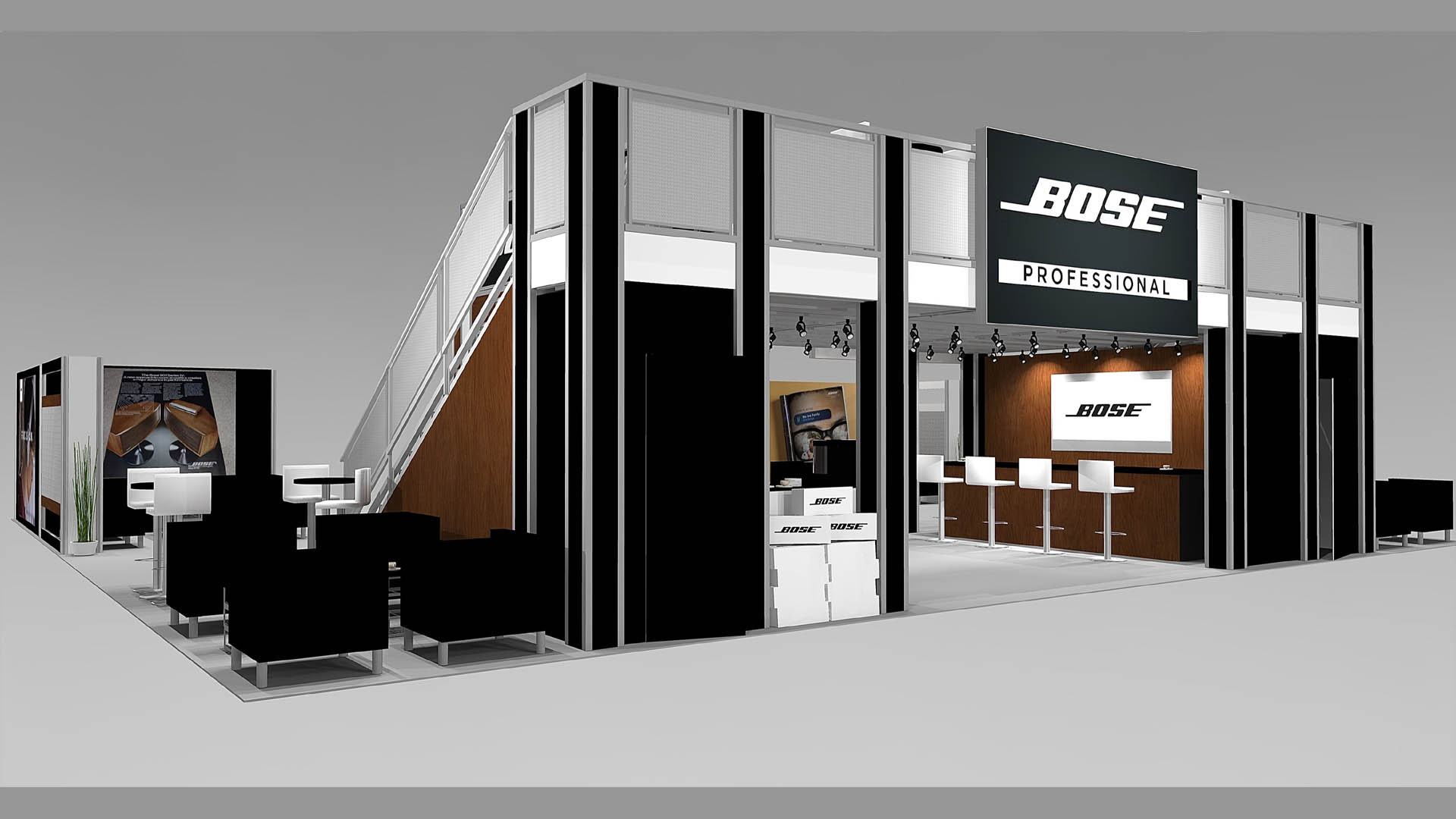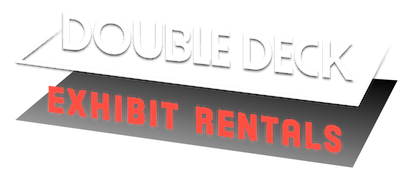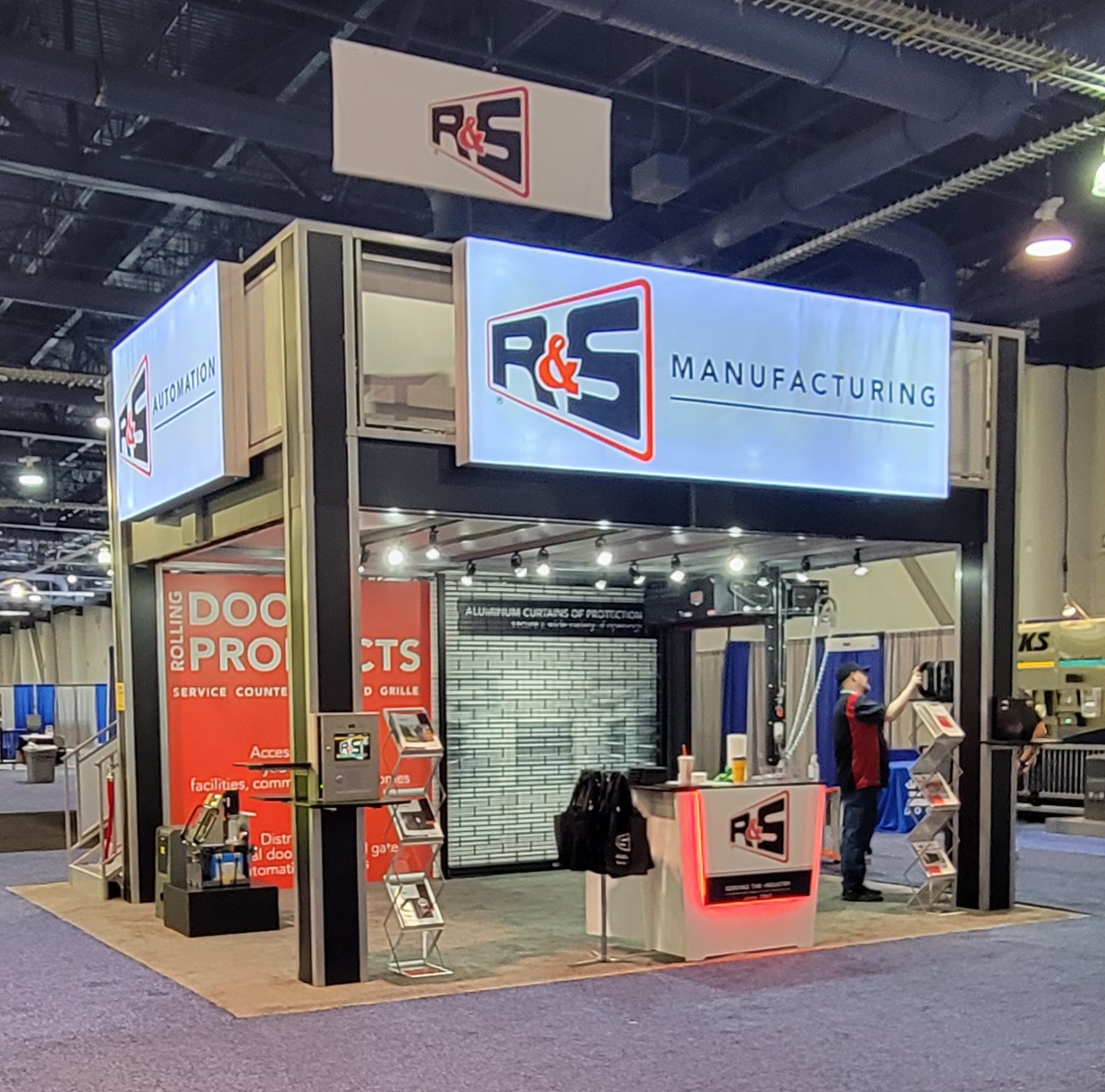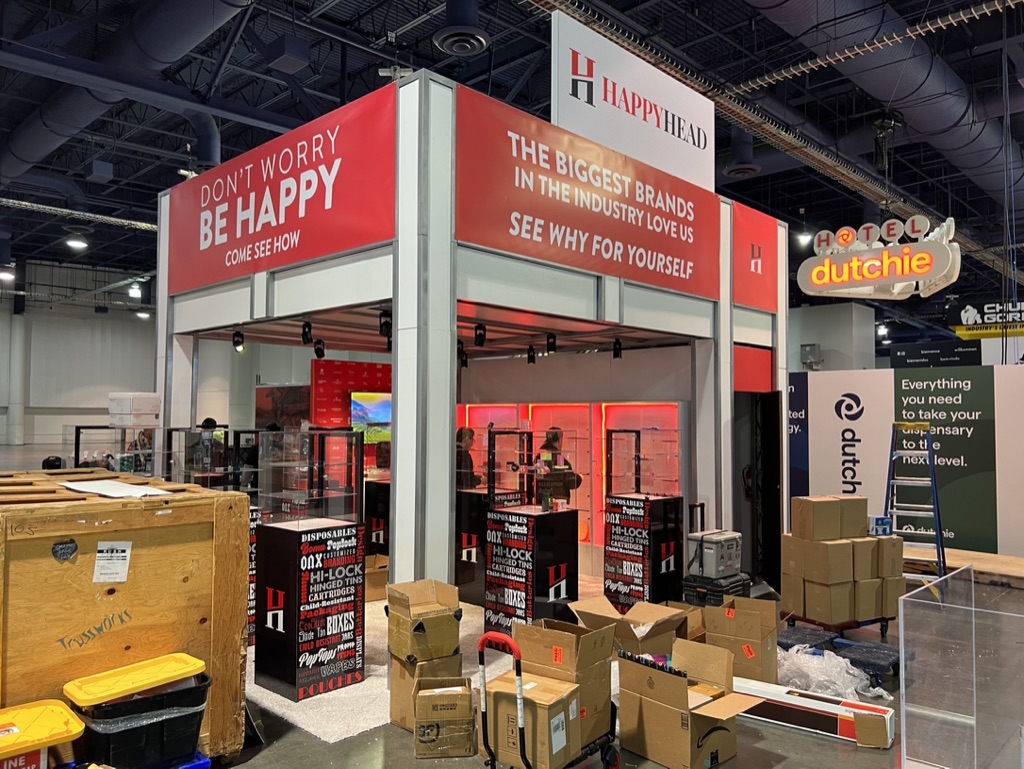First, using a custom exhibit rental provides a huge advantage to you on the show floor. According to EXHIBITOR, 72% of all exhibitors have never considered renting their exhibit. Most exhibitors only use the same exhibit 3-5 times. When it’s time for a new one, they discover theirs is only worth pennies on the dollar. People don’t want to buy someone else’s problem and not purchase a costly exhibit they haven’t seen set up. On top of that, if you want to make a splash once a year at your major show, going big means spending big. Double Decks are the best example. The cost to buy one, store, manage transportation, and labor is huge. Turnkey custom rentals make sense.
Visit our Double Deck Photo Gallery to see examples of our work!
Your exhibit will be custom-made for your needs using the wide variety of options we provide. We provide well over 100 different designs with multiple rendering views and all specs, so it’s easy for you to survey your options and costs. Visit our New Designs for 2022 for quick overviews.
One invoice covers the exhibit, transportation, and labor
You’ll know exactly what you’re spending.
A significant plus is setting a fixed budget for your trade show marketing program. Our pricing includes the most common areas for cost overruns. In addition, we take care of all of the details for you.
Initial purchase and recurring costs for Double Decks can be budget busters. Renting is a cost-effective, practical solution for many reasons, primarily if you only use it once or twice a year. (We store your graphics between shows ). Purchase cost is usually $60,000 – $200,000. Storage costs, inbound inspection after the show, and pre-show staging are added to that. The time and complexity that come with managing transportation and labor alone can be time-consuming and challenging, especially on the setup floor. Many companies have dedicated, experienced trade show marketing staff, but most no longer do, and the process can be time-consuming and fraught with costly challenges. For example, show set-up schedules frequently involve overtime, either nights or weekends. Labor rates can quickly climb to $200 hr. Delays could be very costly if they involve several workers.


